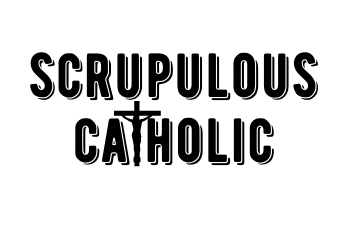You are probably here considering a divorce because of adultery or perhaps just out of curiosity, whatever your reason, you are in the right place! In this blog post, we will answer one of the most frequently asked questions, Does the Catholic Church Allow Divorce for Adultery?
Adultery
First, let’s tackle about adultery.
Adultery is a grave sin. It is against the 6th Commandment, “Thou shalt not commit adultery.”.
To add, according to the Catechism of the Catholic Church,
CCC 2380 “Adultery refers to marital infidelity. When two partners, of whom at least one is married to another party, have sexual relations – even transient ones – they commit adultery. Christ condemns even adultery of mere desire. The sixth commandment and the New Testament forbid adultery absolutely. The prophets denounce the gravity of adultery; they see it as an image of the sin of idolatry.”
CCC 2381 “Adultery is an injustice. He who commits adultery fails in his commitment. He does injury to the sign of the covenant which the marriage bond is, transgresses the rights of the other spouse, and undermines the institution of marriage by breaking the contract on which it is based. He compromises the good of human generation and the welfare of children who need their parents’ stable union.”
The Church believes that adultery causes substantial damage to the marriage and the family, leading to emotional, psychological, and spiritual harm.
Divorce
Divorce as a contract to dissolve a marriage is against the teaching of the Catholic Church.
Holy Matrimony is a Sacrament that is unbreakable. It is a sacred bond between two persons with God as their witness.
CCC 2384 Divorce is a grave offense against the natural law. It claims to break the contract, to which the spouses freely consented, to live with each other till death. Divorce does injury to the covenant of salvation, of which sacramental marriage is the sign. Contracting a new union, even if it is recognized by civil law, adds to the gravity of the rupture: the remarried spouse is then in a situation of public and permanent adultery: If a husband, separated from his wife, approaches another woman, he is an adulterer because he makes that woman commit adultery, and the woman who lives with him is an adulteress, because she has drawn another’s husband to herself.
Annulment
The Church only allows annulment in which the Catholic tribunal declares a marriage was never valid since the beginning because of the grounds as follows:
- One or both parties were not free to marry due to a previous marriage that had never been annulled.
- One or both parties lacked the capacity to enter into a valid marriage due to mental illness or some other factor.
- The marriage was not entered into with the intention of being permanent, faithful, and open to children.
- The marriage was obtained through fraud or deceit.
The annulment process can be lengthy and emotionally exhausting, but it can provide closure and allow for healing.
Divorce due to Adultery
Now that we know the Catholic teaching on adultery, divorce, and annulment, let’s answer the topic question.
Does the Catholic Church Allow Divorce for Adultery?
No. Although adultery can be a ground for separation, the Catholic Church does not permit divorce. However, it allows annulment when a certain ground is met.
The Church encourages spouses to seek reconciliation and work towards healing their relationship. To communicate openly, forgive, and work together to address the issues that led to adultery. This approach focuses on addressing the root causes of the problem rather than simply considering divorce as a quick fix.
Overall, the Catholic Church takes a firm stance on adultery, recognizing the harm it can cause to individuals and families. It offers alternatives such as reconciliation, along with support and resources to help couples work through difficult times.
Marriage Counseling
Marriage is a sacred covenant in the Catholic Church. Thus, it commits Herself to supporting couples in their journey together. From pre-marriage preparation up to the journey after, the Church offers support for the couples.
The Church has marriage counseling that can provide a safe and supportive environment to discuss issues within your marriage and develop strategies to address them properly.
Note that seeking help is not a sign of weakness. But rather a sign of strength and commitment to your marriage. By availing of the resources and support available to you, you can work to overcome the challenges in your marriage. Building a stronger relationship with each other.
Conclusion
Holy Matrimony is a Sacrament that requires a lifelong commitment. It is an unbreakable promise that binds couples. As this is the foundation of families, it has to be holy.
For Catholic couples, communication is the key in maintaining a firm companionship. Understanding, humility, and patience can help in achieving your goals as a couple.
When problem arises, the Catholic Church is always there to help.
That couples live up their promises at the Holy Matrimony, Loving Mother, pray for us.

